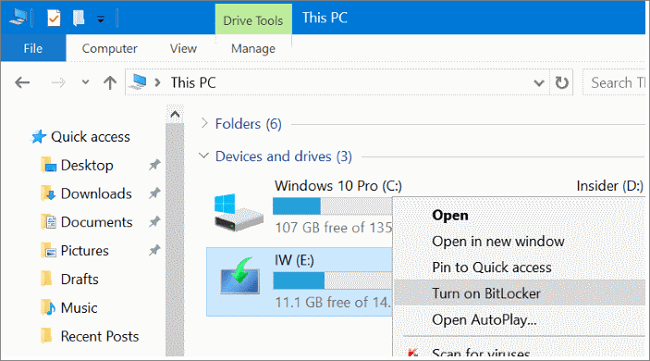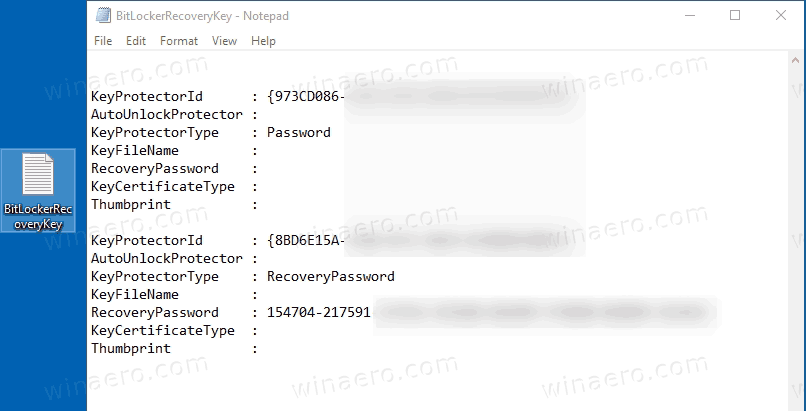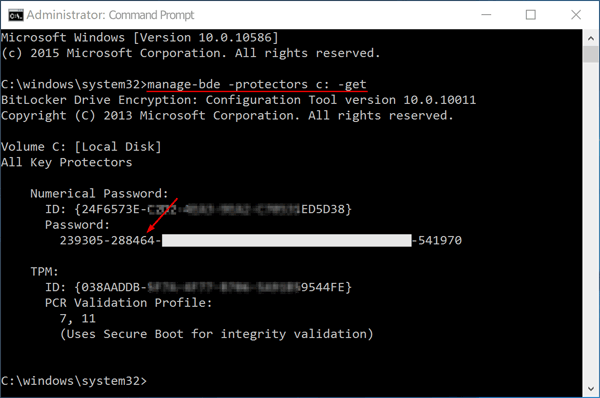
You must unlock the drive before you can change the password on a BitLocker protected drive.Ĭhange BitLocker Password in Command Prompt To Change BitLocker Password in Windows 10, The BitLocker To Go feature allows protecting files stored on a removable drives, such as a USB flash drive.īitLocker supports passwords from 8 to 256 characters long, which may include uppercase and lowercase letters, symbols, numbers, and spaces. BitLocker can encrypt the system drive (the drive Windows is installed on), and internal hard drives. Note: In Windows 10, BitLocker Drive Encryption is only available in the Pro, Enterprise, and Education editions. BitLocker in Windows 10 supports a number of encryption methods, and supports changing a cipher strength. Without hardware encryption, BitLocker switches to software-based encryption so there is a dip in your drive's performance.

In modern versions of Windows such as Windows 8.1 and Windows 10, BitLocker supports hardware-accelerated encryption if certain requirements are met (the drive has to support it, Secure Boot must be on and many other requirements). BitLocker can utilize your PC's Trusted Platform Module (TPM) to store its encryption key secrets.

It was implemented exclusively for Windows and has no official support in alternative operating systems.

You can never be too safe back up your system.BitLocker was first introduced in Windows Vista and still exists in Windows 10. While BitLocker is stable, there will always be risks, especially if you do not have an uninterruptible power supply and run out of power during the encryption process. Make sure you fully back up your system before encrypting it with BitLocker.Your computer should always be connected to a power supply throughout the encryption process.Depending on the amount of data in your system, encryption could take a pretty long time, so brace yourself.The partitions should also follow the NTFS file system. If you don’t have these partitions, don’t worry, BitLocker will create them for you.

There needs to be a system partition with the operating system, and another partition with all the required files to start Windows.


 0 kommentar(er)
0 kommentar(er)
